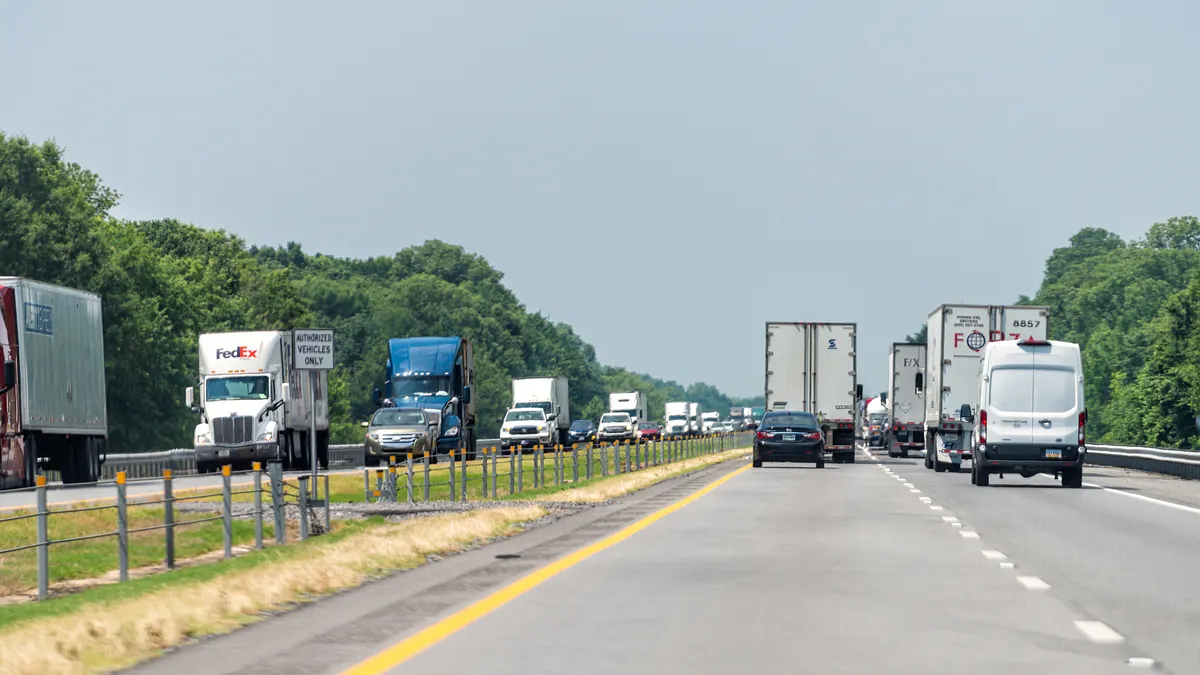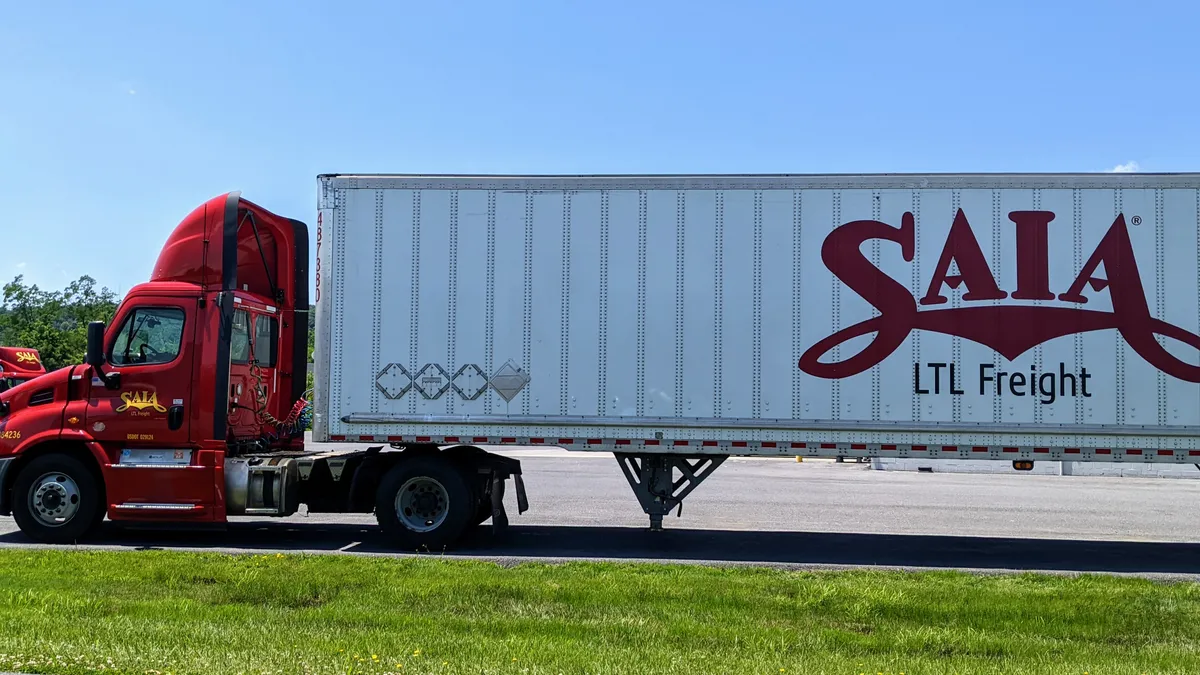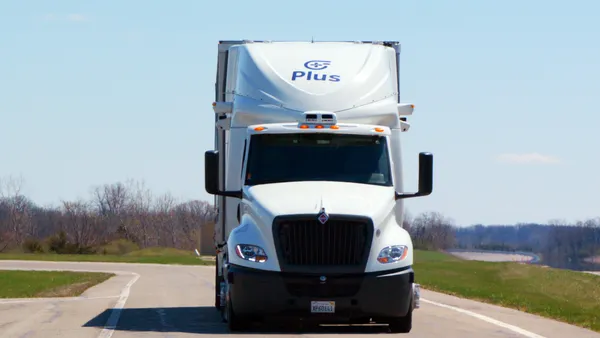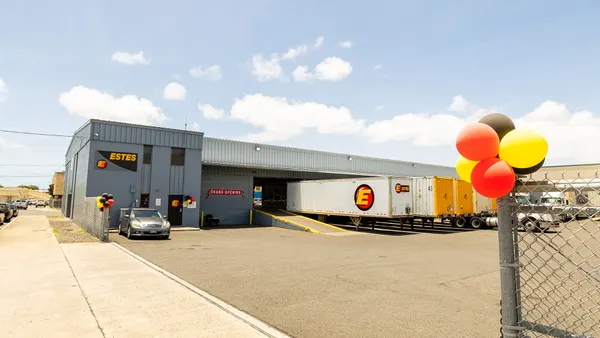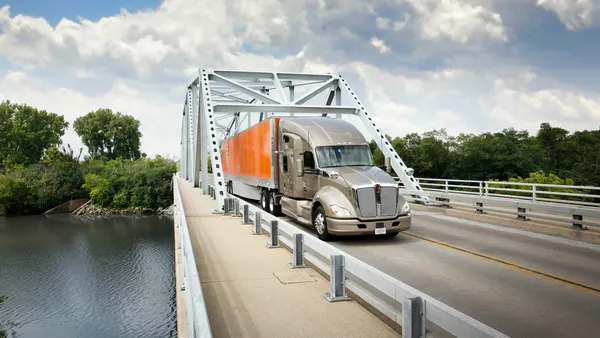Dive Brief:
- Universal Logistics Holdings’ Q1 revenue decreased by 22% year over year to $382.4 million as trucking volumes sank 31% during the quarter, according to its earnings report released April 24.
- During the company’s earnings call, CEO Tim Phillips blamed the lower-than-expected results on slowed auto production, the company’s largest vertical market, as well as continued weakness in the freight market.
- “While Q1 was clearly a challenging quarter, we are not standing still,” he said. “We are focused, we are making necessary adjustments, and we believe the second half of 2025 will look markedly different.”
Dive Insight:
Universal executives believe that as the automotive industry rebounds, so will the logistics company’s volumes. In March, auto production increased 67% over January’s levels, CFO Jude Beres said.
In the meantime, automotive companies have continued to reduce their existing inventories by 40%, due in part to consumers’ tariff concerns. Beres noted that the average days’ supply has fallen to 70 days, versus last summer’s inventory levels of about 116 days.
“If tariffs don't kill the entire industry, we're really set up in the back half for some decent production numbers, which will really drive our results,” Beres said.
Universal is in constant communication with its customers regarding potential tariff mitigation tactics like reshoring, Phillips said, adding that the company’s expanded U.S. footprint gives it a competitive advantage. At least two of the U.S. assembly plants that Universal serves are increasing production.
Additionally, the company is educating its customers about its manufacturing capabilities in Louisville, Kentucky, via subsidiary Westport Machining, as well as offering storage and warehouse capacity in locations near U.S. port and rail cities, Phillips said.
“We feel comfortable that whatever their strategies are and how they realign their supply chain, we'll be there to help them consult and hopefully optimize their network,” he said.
Outside of automotive, Universal is banking on its specialized heavy haul wind operation to be a key contributor to its trucking revenues in 2025. Despite trucking revenues falling 20% YoY, Phillips credited Universal’s “strategy of emphasizing specialized high-yield freight” for a 24% increase in revenue per load excluding fuel surcharges.




